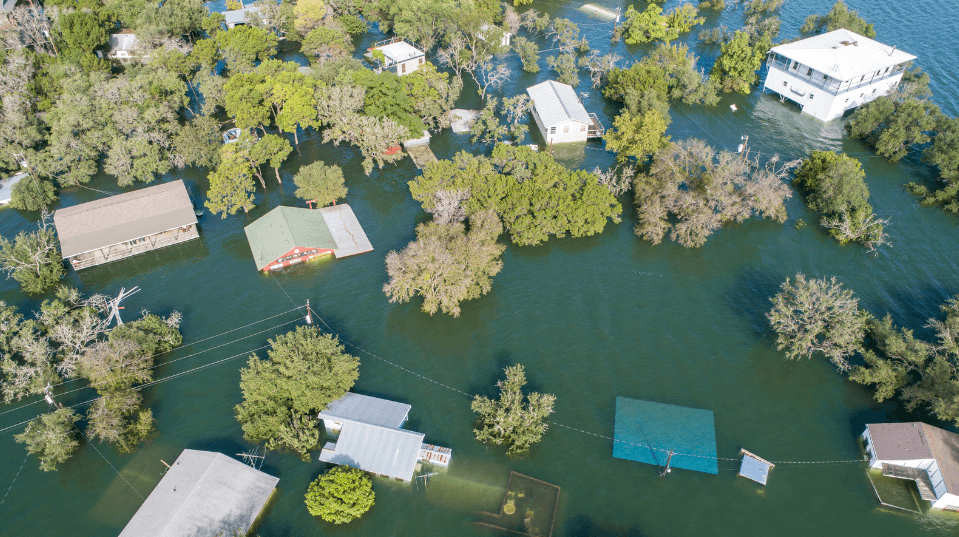Discover effective strategies to save money on your mortgage.
The economy has everyone reviewing every dollar we spend. I know because recently I saw that my mortgage payment was going to be increasing by more than $300 a month.

So... I did some digging to find some ways where I could save money on my mortgage payment. In this blog I am going to walk you through three areas I found that could help you lower your mortgage payment.
Saving Money on Mortgage Payments
Homeowners insurance is an essential part of protecting your investment in your home.
While it may seem like an added expense, having homeowners insurance can actually save you money in the long run. In the event of damage to your home caused by a covered peril, such as a fire or severe weather, your insurance policy will help cover the cost of repairs or rebuilding.


This can save you from having to pay out of pocket for these expenses, which can be quite substantial. Additionally, many mortgage lenders require homeowners insurance as part of the loan agreement, so having a policy in place is often a necessity.

Homeowners Insurance Impact
To save money on your homeowner's insurance, there are a few strategies you can employ. First, shop around and compare quotes from different insurance companies. Always remember not to lower home insurance coverage just to save a little money.
This is where many homeowners get in trouble when it comes to not having enough coverage to cover a claim. Rates can vary widely, so it's important to do your research and find the best deal. You may also be able to save by bundling your homeowners' insurance with other policies, such as auto insurance, through the same company.

Additionally, consider increasing your deductible, which is the amount you'll have to pay out of pocket before your insurance coverage kicks in. A higher deductible can lower your premium, but be sure you have enough savings set aside to cover that higher deductible if you need to make a claim.
Finally, regularly review your homeowners' insurance policy to make sure you have adequate coverage. As the value of your home and belongings may change over time, it's important to reassess your coverage needs. You may be able to adjust your policy to reflect these changes and potentially save money.
Flood Insurance
If you live in an area prone to flooding, having flood insurance is crucial. Standard homeowners insurance policies typically do not cover flood damage, so it's important to have a separate flood insurance policy in place to protect your home and belongings. While flood insurance may seem like an additional expense, it can save you from significant financial loss in the event of a flood.

The good thing about flood insurance is that the payment amount is generally made annually. This means that you only need to make one payment per year to secure a flood policy to protect your home. This can also eliminate making extra payments during the year. When it comes to flood insurance payments, you can have your lender help you pay the cost as flood insurance payments can be done either by you, your company, or with the help of your insurance agent.

Additionally, if your property is mapped into the Special Flood Hazard Area (SFHA) or high-risk flood zones, your lender will require you to carry flood insurance. This is regardless if you take out a new loan since this is something that the government can require too. This may also look grim when it comes to the concern of getting lower rates to avoid adding to your already-existing loan amount costs.
However, it's really crucial to remember that if you're mapped into the SFHA, your property is facing 1% of flooding annually. In mortgage terms, this means that you may get flooded at least 25% during a 30-year mortgage.
Understanding how flood also behaves and how it can impact your property may be able to save thousands in flood loss. That additional cost for a separate flood insurance policy can allow you to save money long term. This is true considering that even an inch of flood can cost thousands of dollars in damages and if you get flooded with proper flood policy protecting you, you may also start to see an increase in your home loan payment every year — not just on your flood policy.
Saving Thousands in Flood Insurance Costs
To save money on flood insurance, consider taking steps to mitigate your risk of flood damage. This can include measures such as elevating your home, installing flood vents, and maintaining proper drainage systems.
By reducing your risk of flood damage, you may be eligible for lower insurance premiums. Additionally, be sure to compare quotes from different insurance providers to find the best rate for your flood insurance policy.

Remember, no matter where you go all rates should be the same with the National Flood Insurance Program also known as NFIP.
Coverages available for residential properties with NFIP can be up to $250,000 on building structures and $100,000 on content coverage.
Where you may see the real benefit is looking at the different private flood insurance options. Each private flood insurance company is going to offer different coverages and different pricing based on risk underwriting which can further help you save more on flood insurance.
The video below discusses different private flood insurance coverages available.
It's also important to note that flood insurance may be required by your mortgage lender if your home is located in a high-risk flood zone. Even if it's not required, it's still a wise investment to protect your home and belongings against the devastating effects of a flood.
When it comes to saving money on your mortgage, understanding the tax benefits can make a significant difference. The interest you pay on your mortgage loan is often tax-deductible, which can result in substantial savings. Be sure to consult with a tax professional to understand the specific deductions and credits available to you based on your mortgage.
One effective strategy to save money on your mortgage is by challenging your tax bill. With property values skyrocketing across the country, it's possible that your home's value has been overestimated.
This was the case for me, and when I appealed, it resulted in a significant decrease of $1200 in my annual tax bill. By taking advantage of this opportunity, you can further reduce your overall tax burden and save even more money on your mortgage.
For more ways to save on your mortgage, we'll help you connect with a mortgage consultant.

.png?width=1280&height=720&name=The%20Flood%20Insurance%20Guru%20Learning%20Center%20-%20%20(18).png)


















